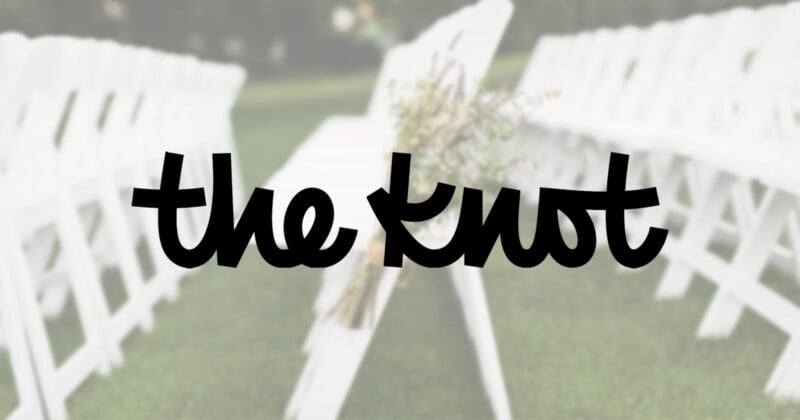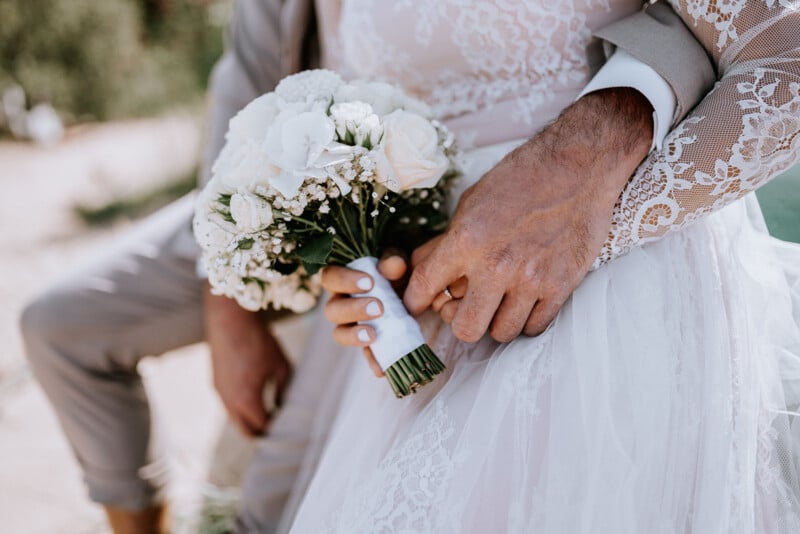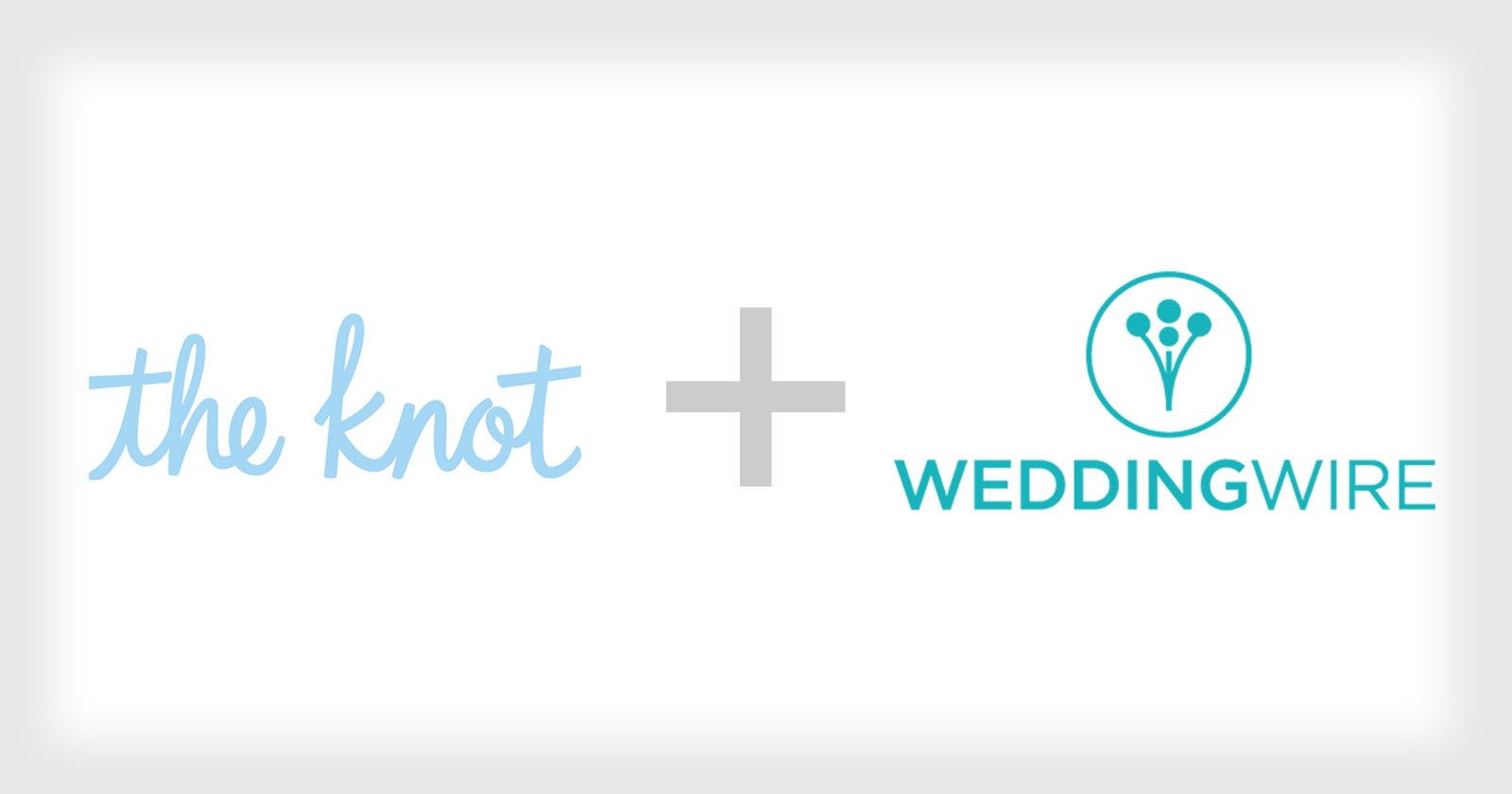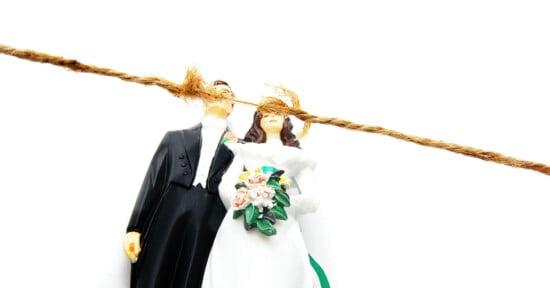The Knot Accused of Selling ‘Fake’ Leads to Wedding Photographers

In March, The New Yorker published a long exposé that accuses, through interviews with multiple vendors and former employees, The Knot of packing its paying vendors with “fake brides” that never materialize into paid jobs. The Knot strongly denies these claims.
The story alleges that The Knot — which is the leading digital wedding-planning platform that acts as a sort of “yellow pages” for weddings — provides low-quality or fraudulent leads to vendors who pay to advertise on the site to prospective couples.
The New Yorker says The Knot facilitated $4 billion in consumer spending via advertising on its platforms last year. 900,000 vendors in more than 10 countries use it and many pay to advertise to couples.
“In 2024, we delivered over 9 million leads to vendors, and helped drive nearly $4 billion in spend with local, small businesses through our global marketplaces,” a spokesperson at The Knot Worldwide confirmed to PetaPixel.
But The New Yorker positions at least some of what The Knot does as underhanded, citing multiple current and former vendors who say they felt as though the leads generated on the platform were fake.
Allegations of Fake or ‘Spam’ Leads
“They’re doing some baaaad, shady stuff behind the scenes,” Sergio Guadarrama, a bridal dressmaker from New York, tells The New Yorker.
“We were looking at the Knot as a beacon of hope,” Kade Johnson, Guadarrama’s business partner and fiancé, adds. “And it was the complete opposite.”
Guadarrama says that after signing the advertising contract with The Knot, he was hit with the promised huge influx of emails, which were described as “bland and formulaic.” He responded to every one but says he never heard anything in return.
‘The Knot Worldwide does not, and has never, sent fake leads to vendors, under any circumstances.’
-The Knot Worldwide
“We understand the frustration you feel when you receive messages that don’t seem to convert into bookings or appear less than ideal. While we have room to improve, The Knot Worldwide team does not send, and has never sent, ‘fake leads’ to vendors or deployed ‘fake couples,'” Casey Moujaes VP, US Vendor Marketing and Global Product Marketing wrote in a blog post on The Knot.
“Couples interact with our platform at all stages of planning—from having zero items crossed off their to-do list to having practically every detail set in stone—and they tend to reach out to four vendors per category, on average. Some areas of our platform offer pre-written message templates to help couples get started and save time, which can lead to more booking opportunities for you. When couples choose not to edit these messages, they can seem repetitive or lack specifics, which can be misinterpreted as a fake lead,” Moujaes writes in an explanation of Guadarrama’s experience.

“If a couple doesn’t respond after their initial message, it’s sometimes perceived as a fake couple. Ghosting happens across many different areas of society—think online dating, job interviews, and doctor appointments. Unfortunately, The Knot and WeddingWire are no exception. That doesn’t make it any less frustrating,” she continues.
“The Knot Worldwide does not, and has never, sent fake leads to vendors, under any circumstances. Nobody benefits from fake leads—not our vendors, couples, or The Knot Worldwide as a business,” a spokesperson at The Knot Worldwide tells PetaPixel.
“In 2024, vendors reported less than 1% of messages from couples as spam. We do not tolerate fraudulent practices and hold ourselves to high standards of transparency and ethics.”
The New Yorker writes that it also spoke with photographer David Sachs who alleges the platform works hard to pull advertisers into the highest-paid tier and then alleges that it fulfills its promises with fake leads.
“The Knot was the biggest directory at the time, so I figured I would just do what everyone else was doing. [Initially] sales were higher than expenses, and that was good enough for me,” he tells the magazine. But after a few years, the leads started to wane and when he called to close his account, a Knot representative talked him into doing the opposite: increasing his spending.
“I started spending a thousand dollars a month,” he says, and leads followed. He even talked to some on the phone, but he claims it wasn’t what he was promised.
“It felt like all the brides were reading from a script. I could hear other calls in the background, and they all had the same lilting tone. That’s when I realized, they have a literal phone bank of people who are faking leads,” he alleges.
The Knot denies these allegations vehemently. It should be noted that despite his claims, Sachs still has a storefront on The Knot today.
The New Yorker says it found more than 20 vendors who advertise with The Knot who say they believe they have received fake leads. Beyond that, the magazine says it obtained Federal Trade Commission documents that show more than 200 formal complaints about The Knot and Wedding Wire since 2018. The magazine also says it spoke with more than 70 current and former employees of The Knot, almost all of whom requested anonymity due to fear of retaliation. The magazine cites multiple who either believed it was possible that the company was creating fake leads and others who outright plainly stated they hurt their vendors.
The Origin of Allegations
One major section of The New Yorker‘s story revolves around a former, 20-year sales veteran at The Knot, Jennifer Davidson. Davidson says that in 2015, she came to believe that the company was defrauding its biggest advertisers.
“By her account, the digital ads that she and her colleagues were selling were not reliably showing up on the Knot’s website. Macy’s, David’s Bridal, Kleinfeld Bridal, Justin Alexander, and even the NFL, she felt, had together been duped out of millions of dollars,” The New Yorker writes.
“The claims made by the former XO Group employees were investigated in 2017 by both internal and external counsel, concluding that all claims of widespread misconduct were unsubstantiated,” a spokesperson at The Knot Worldwide tells PetaPixel. XO Group was the name of The Knot’s parent company before it was acquired by Wedding Wire.
‘The claims made by the former XO Group employees were investigated in 2017 by both internal and external counsel, concluding that all claims of widespread misconduct were unsubstantiated’
-The Knot Worldwide
“The SEC and state regulators were both alerted, conducted their own investigations, and did not pursue any action. In the course of the investigation into the former employees’ 2016 advertising visibility allegations, which were unsubstantiated, a material weakness was identified in XO Group’s internal controls for the national advertising business. The total amount affected for all advertisers was approximately $160K, representing a fraction of one percentage of our overall revenue. All advertisers affected were offered make-goods. The material weakness was publicly disclosed in XO Group’s SEC filings at the time, and promptly remediated,” the spokesperson continues.
“Enhanced review procedures and access standards were in place during the 2017 fiscal year, as you can see in the SEC filings. We have an independent auditor, EY, who has attested to the accuracy of our financials each year since 1998.”
The New Yorker states these findings, but also adds that “Davidson believes that employees lied to government officials and mucked up the SEC investigation,” but no proof of these claims is provided.

The New Yorker‘s full piece is long, but is worth reading to grasp the breadth of its investigation and to read additional pieces of evidence that back up its main points. It is extremely well-researched and appears to be backed by months of work.
The Knot Was Already Making Changes
While, as mentioned, The Knot strongly disputes the allegations in The New Yorker story, it does say that it has room to improve nonetheless and is working to make the experience better — it had started this process before The New Yorker‘s story was published. The company’s new CEO Raina Moskowitz, who is formerly from the leadership team at Etsy, has been working to increase value to vendors and the company says it is her top priority.
“We understand the frustration you feel when you receive messages that don’t seem to convert into bookings or appear less than ideal. While we have room to improve, The Knot Worldwide team does not send, and has never sent, ‘fake leads’ to vendors or deployed ‘fake couples,’” Moujaes says.
“The sentiments shared by wedding pros reflect how important it is to continue our commitment to raising the bar and bolster the value we provide to vendors. We’re doubling down on marketing to draw new couples to our sites after a historic year for couple signups, enhancing the experience on our platform for couples and vendors, and deepening our investment in spam prevention. Feedback from vendors will continue to steer our decision-making and product roadmap,” a spokesperson at The Knot Worldwide tells PetaPixel.
On March 13, Moskowitz shared a message with vendors about the work The Knot is doing and its commitment to raising the bar.

“In the two months since I joined The Knot Worldwide as CEO, I’ve spoken with dozens of industry pros and our WeddingPro Customer Advisory Board to gather candid feedback about working with us. While wedding professionals continue to thrive with us as the wedding platform with the largest audience of engaged couples, I’ve also learned that meaningful innovation is needed in the way that we partner with you in our next chapter together,” Moskowitz says.
“That’s why I am committing one thing to you today: we will raise the bar across the board to continue to deliver great value, help you match with couples and serve as an indispensable partner as you grow your business.”
Image credits: Photos licensed via Depositphotos.



